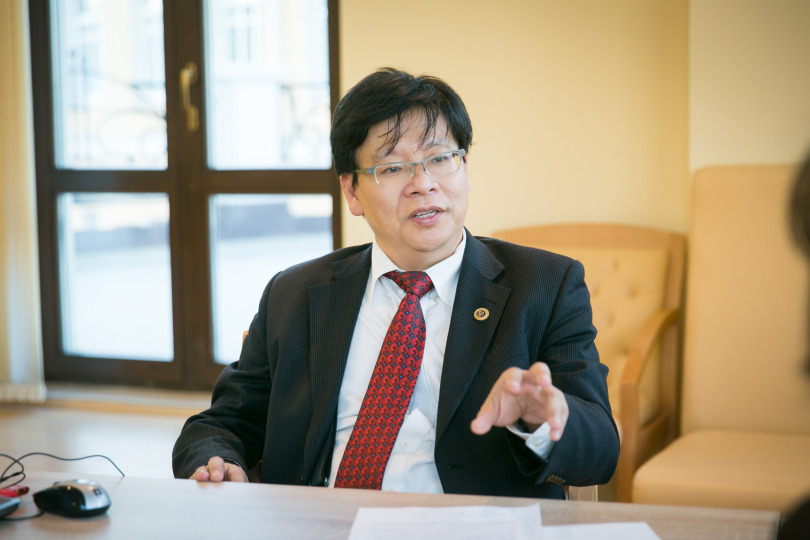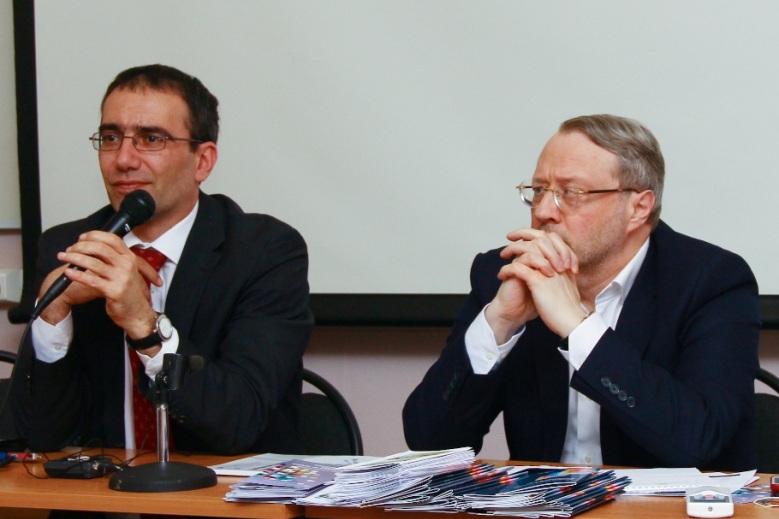Facts about Students in Science
Research plays a growing role in the educational process of the country’s leading universities. The HSE Statement of Values, for example, underscores its importance, stating: ‘Our lectures and textbooks reflect cutting-edge academic research; our academic articles, student papers, models and experiments seek to expand the horizons of contemporary academic inquiry.’ In honor of Students’ Day, we present a selection of facts about the connection between study and science in Russian universities, and specifically at HSE. (Sources: Monitoring of Education Markets and Organizations (MEMO), Monitoring Survey of Innovative Behavior of the Population (MSIBP), additional materials of the Institute for Statistical Studies and Economics of Knowledge (ISSEK), as well as results of a survey by the HSE Centre for Institutional Research (CIR).
Who Studies Russian Science and How?
On February 8, Russian Science Day, the Higher School of Economics, along with the Russian Federal State Statistics Service (Rosstat) and the Ministry of Education and Science, released its annual statistical data book on the state of science, technology, and innovation. Below, the Director of the HSE Institute for Statistical Studies and Economics of Knowledge and HSE First Vice Rector Leonid Gokhberg discusses how research on science in Russia is advancing.

‘If You Want to Collaborate with a Foreign Country, You Must Learn Its History and Culture First’
On September 24, 2015, a delegation of the Ministry of Science and Technology of Taiwan (MOST) visited HSE Institute for Statistical Studies and Economics of Knowledge (ISSEK). With the goal to identify perspective areas of cooperation, researchers of HSE and MOST delegates shared their unique fields of expertise and discussed key trends and instruments of Taiwan’s and Russia’s state policy on international cooperation in science, technology, and industrial innovation. During the visit, Dr. Yi-Bing Lin, Taiwan’s Deputy Minister of Science and Technology, gave an interview to the HSE news portal, in which he cited Karl Marx’s theory, while talking about big data and futures studies.
Foresight Courses in Manchester: Evolution of HSE Expert Participation
The annual foresight courses which have been running at Manchester University since 1999 are considered some of the most prestigious and important for researchers of the future. In July 2015 two researchers at the Foresight Centre at ISSEK who have been students on the courses themselves have been invited this year to come and teach.
Foresight: Moving from the Future to the Present
Russia is beginning to develop a system of strategic planning. One of its elements is foresight of science and technology development. What place does foresight occupy in this system, and how can its results be implemented? In an interview for the Science and Technology in Russia project, First Vice Rector of HSE and Director of its Institute for Statistical Studies and Economics of Knowledge (ISSEK) Leonid Gokhberg explained why Russia needs foresight.

ISSEK Held an Open Day for the Master’s Programme in Governance of Science, Technology and Innovation
On April 8th the HSE Institute for Statistical Studies and Economics of Knowledge held an Open Day for the Master’s programme 'Governance of Science, Technology and Innovation'. The prospective students met the programme’s administrators, their future teachers, and possible employers: the presentation was attended by prominent members of the business community and government agencies.


Application deadline: June 23, 2025